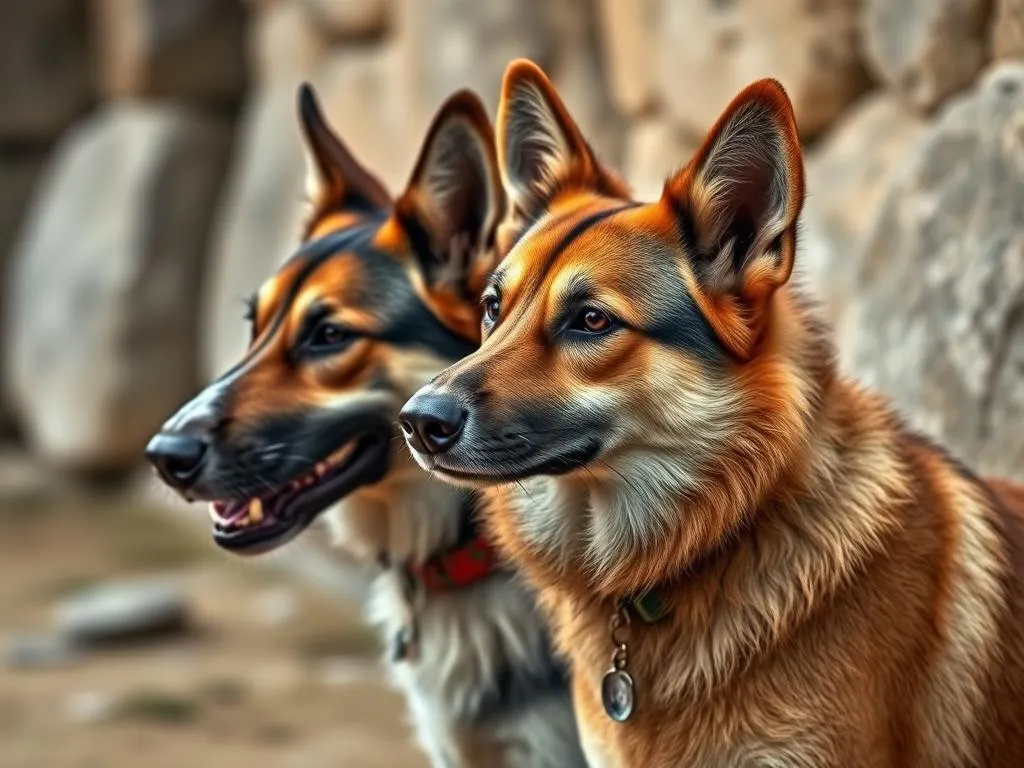
Introduction
Nestled in the Eastern Himalayas, Bhutan is a land of stunning landscapes, rich culture, and deep spiritual traditions. Known for its commitment to preserving its unique heritage, Bhutan is not only famous for its majestic monasteries and vibrant festivals but also for the integral role that dogs play in the lives of its people. In Bhutanese culture, dogs are not merely pets; they are companions, guardians, and symbols of loyalty and protection.
This article aims to explore the significance, breeds, and lifestyle of Bhutan dogs, delving into their historical, cultural, and practical aspects. From the majestic Bhutanese Mastiff to the charming Shih Tzu, we will uncover the unique relationships that Bhutanese people share with their canine companions. Join us as we embark on this journey to discover why dogs in Bhutan hold a special place in the hearts of its people.
The Cultural Significance of Dogs in Bhutan
Historical Context
The history of dogs in Bhutan is as rich and multifaceted as the nation itself. Historically, dogs have been integral to Bhutanese society, serving various roles that extend far beyond companionship. They have been utilized for herding livestock, guarding homes, and even participating in traditional hunting practices. The Bhutanese Mastiff, in particular, is renowned for its strength and protective instincts, making it an essential part of rural life.
Spiritual Beliefs
In Bhutanese mythology and folklore, dogs are often depicted as spiritual beings with protective qualities. They are considered guardians of the home and are believed to ward off evil spirits. In many villages, it is common to see dogs accompanying their owners during spiritual rituals, symbolizing loyalty and fidelity. This deep-seated belief in the spiritual significance of Bhutan dogs adds another layer to their importance in local customs and traditions.
Modern Role
In contemporary Bhutan, dogs continue to play a vital role in households. They are cherished as companions and family members, often seen lounging in homes or accompanying their owners on daily errands. The bond between Bhutanese people and their dogs is characterized by mutual respect and affection, reflecting the deep-rooted cultural connections that have evolved over centuries.
Native Breeds of Bhutan
The Bhutanese Mastiff
The Bhutanese Mastiff is perhaps the most iconic breed associated with dogs in Bhutan. Known for its impressive size and commanding presence, this breed possesses a thick coat that protects it from the harsh Himalayan climate. With a loyal and protective temperament, the Bhutanese Mastiff is primarily used for herding and guarding livestock, making it an invaluable asset to rural communities. Its ability to withstand extreme weather conditions adds to its importance in the lives of Bhutanese farmers.
The Shih Tzu
While the Shih Tzu is often associated with China, its presence in Bhutan has historical significance. Brought to Bhutan as royal gifts, these small, fluffy dogs have adapted well to the country’s environment. Known for their friendly demeanor and affectionate nature, Shih Tzus are popular companions in urban households. Their charming appearance and playful character make them beloved pets among families.
Other Local Breeds
In addition to the Bhutanese Mastiff and Shih Tzu, several lesser-known breeds thrive in Bhutan’s diverse environments. Breeds such as the Bhutanese Terrier and the local variety of the Tibetan Spaniel exhibit unique traits suited to the Himalayan landscape. These dogs are often employed for various tasks, including herding, guarding, and companionship, showcasing the adaptability and resilience of Bhutan dogs.
Dogs in Bhutanese Lifestyle
Living Conditions
The living conditions for dogs in Bhutan vary significantly between urban and rural areas. In rural settings, dogs often roam freely, playing a significant role in community life. They are integrated into family activities and are commonly seen accompanying their owners during daily chores. In urban areas, however, dogs may experience more confinement, residing in homes with limited outdoor access. Regardless of the setting, Bhutanese families prioritize the well-being of their dogs, providing them with food, shelter, and companionship.
Care and Maintenance
Caring for dogs in Bhutan involves a mix of traditional practices and modern approaches. Nutrition is a key aspect of dog care; many Bhutanese families feed their dogs a combination of rice, vegetables, and occasional meat. Grooming practices vary, with long-haired breeds like the Shih Tzu requiring regular brushing to prevent matting. Veterinary care is becoming more accessible, with an increasing number of clinics offering services to address health concerns.
Socialization and Training
Training and socializing Bhutan dogs is crucial for their development and integration into family life. Traditional methods often involve positive reinforcement, with owners using treats and praise to encourage desired behaviors. Socialization is particularly important in rural areas, where dogs must be accustomed to interacting with livestock and other animals. In urban settings, socialization helps ensure that dogs can navigate the complexities of city life, including encounters with strangers and other pets.
Challenges Faced by Dogs in Bhutan
Stray Dog Population
One of the significant challenges faced by dogs in Bhutan is the growing population of stray dogs. While these dogs often form loose social structures within communities, they can also face harsh realities, such as food scarcity and lack of shelter. Estimates suggest that thousands of stray dogs roam urban and rural areas, leading to public health concerns and the need for effective management strategies.
Health Concerns
Health issues among Bhutan dogs are compounded by limited access to veterinary care in some regions. Common health problems include parasites, skin conditions, and infectious diseases. While urban areas may have better access to veterinary clinics, rural regions often lack essential services, making it challenging for dog owners to ensure their pets receive proper care and treatment.
Environmental Factors
The unique geography and climate of Bhutan also impact the lives of dogs. Harsh winters and unpredictable weather can pose challenges for both stray and domesticated dogs. In addition, the interaction between dog populations and local wildlife can lead to conflicts, particularly in areas where dogs are used for herding livestock. Understanding and addressing these environmental factors is essential for ensuring the well-being of dogs in Bhutan.
Conservation and Welfare Efforts
Local Initiatives
Several local organizations are dedicated to improving the welfare of dogs in Bhutan. These initiatives focus on addressing the issues faced by stray populations, providing medical care, and promoting responsible pet ownership. Programs that offer spaying and neutering services have seen success in reducing stray populations, while education campaigns raise awareness about the importance of animal welfare.
Government Policies
The Bhutanese government has recognized the need for effective policies regarding stray dogs and animal welfare. Regulations are being developed to manage stray populations while ensuring humane treatment. Animal welfare laws are being established to protect the rights of dogs and ensure their well-being, reflecting Bhutan’s commitment to compassion and care for all living beings.
Community Involvement
Community involvement plays a critical role in improving the lives of dogs in Bhutan. Local residents actively participate in dog care initiatives, from feeding strays to organizing vaccination drives. Education programs aimed at promoting responsible pet ownership help foster a culture of compassion and respect for animals, ensuring that future generations continue to advocate for animal welfare.
Conclusion
In conclusion, dogs in Bhutan are far more than just pets; they are an integral part of the cultural fabric and way of life. From their historical significance to their modern roles as companions and guardians, Bhutan dogs hold a special place in the hearts of the Bhutanese people. While challenges such as stray populations and health concerns persist, ongoing conservation and welfare efforts offer hope for a brighter future for these beloved animals.
As we reflect on the importance of dogs in Bhutan, it becomes clear that their presence enriches the lives of those around them. Supporting local initiatives and advocating for animal welfare can help ensure that these loyal companions continue to thrive in the breathtaking landscapes of Bhutan.









